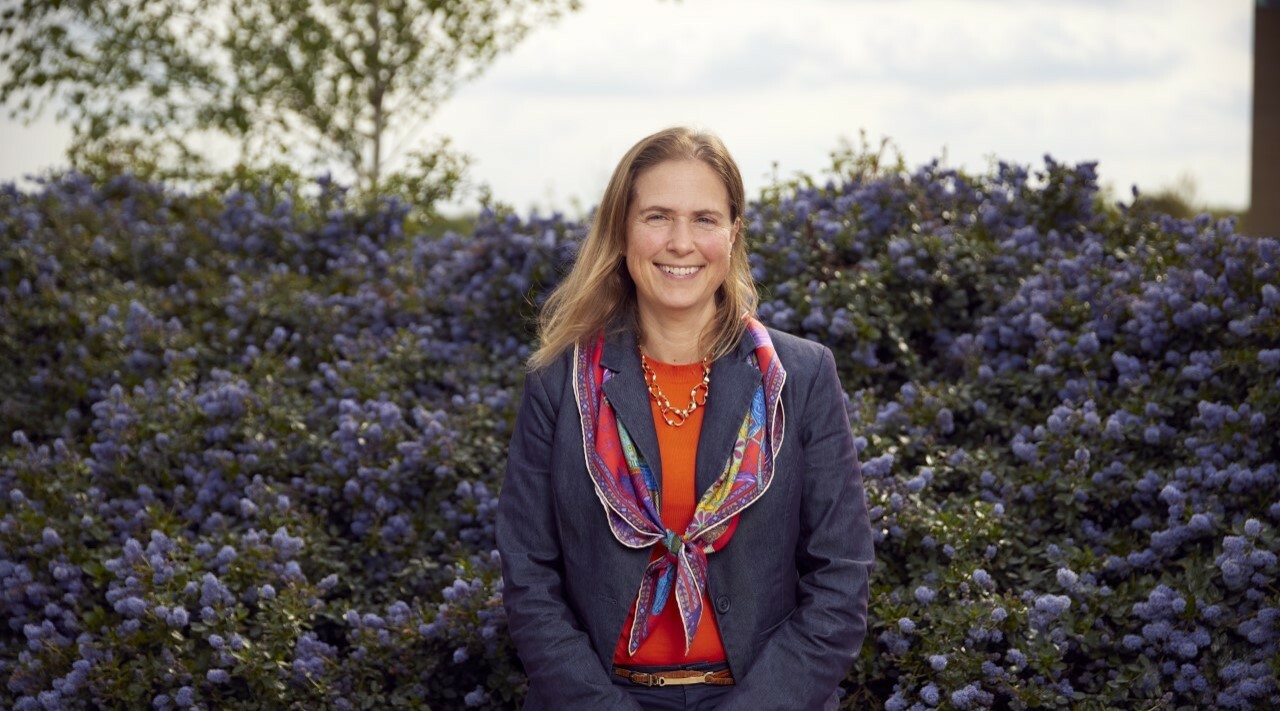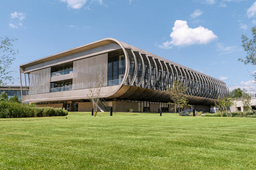Be bold. Be brilliant. Be kind.

9 February 2023 – Sarah Teichmann, pioneer in bioinformatics and co-founder of the Human Cell Atlas consortium, is the 2023 recipient of the FEBS | EMBO Women in Science Award. Here, she talks to Kathy Weston about finding the right research path, and why kindness is central to her lab philosophy.
You were part of the generation that essentially invented modern bioinformatics. What was it that interested you so much about it?
What I loved about it was the ability to take a broader view of biology. Rather than just studying one molecule or pathway, you could look at the whole universe of genes, the whole universe of molecules, to reach a holistic view of biology. This then helped you to understand the patterns of gene and protein evolution, the features of structural protein families, the domain architecture of genes and so on. That was just amazing to me.
What is it about your current work that excites you most?
We’re at the assembly phase in the Human Cell Atlas initiative, which is mapping all cells in the human body using genomics technologies. It's an incredibly exciting time where we are integrating data and building detailed atlases of individual organs. We can now integrate distributed systems like immunity, vasculature, the musculoskeletal system and so on, across the body. It’s like the phase in the Human Genome Project where the chromosomes were beginning to be assembled from the contigs to make the golden path of the genome sequence. It's great fun, because there's so much novelty to discover. We’re also starting to see the translational potential of the work, which is equally exciting.
The Human Cell Atlas (HCA) consortium is a great example of inclusivity and global reach in science. Was this a deliberate strategy?
Yes. My co-founder Aviv Regev and I always wanted the HCA to be a bit different to other genomics consortia—to make it open for everyone to join, and to really support and empower a broad diversity of talented people from around the world. Open access and openness of the community are also very important to us. The consortium is something that anybody, irrespective of research sector, can join. All you have to do is sign up.
You are renowned for your skills as a manager and a mentor. Are these talents something that you've learned as you've gone along?
I guess you do learn in the sense of what people respond to, and what they don't respond to. So you become better and more experienced at how to mentor and manage people well. It’s a part of being a scientist that doesn't usually get recognized, but it is something that I value.
Who were your own mentors?
Janet Thornton, with whom I worked as a postdoctoral researcher, has been an incredible role model for me, especially in terms of how to lead a community. And Cyrus Chothia, my PhD supervisor, was another great mentor, but in a completely different way. He was always happy to chat, but he expected you to do your research independently, and get on with a project from beginning to end, including writing papers—to do everything yourself. And that is fantastic training, because you gain a broad skillset.
Your lab motto is “Be bold. Be brilliant. Be kind”. Why is there a need for the last, and how should being kind manifest itself?
I wanted it to be absolutely clear to everyone who works with me that I value collaborative, respectful, polite interactions. If it’s up front in the motto, there's no misunderstanding. Being kind leads to better relationships and supportive attitudes, both within the group and outside the group.
What do you think it takes to be happy as a scientist?
You need to enjoy your day-to-day work, but the broader topic and mission of your research also needs to be something that you are excited about. That makes everything worthwhile. And you need to find where you will thrive. There are lots of options for scientists apart from academia: biotech, pharma, consulting, venture capital and so on. The world is your oyster.
Scientists have to balance the need for rapid research advances with good quality of life. Have you got a solution for that?
It’s a tricky one. In addition to hard work and good ideas, I think you can accelerate science (and incidentally have lots of fun!) through collaboration. Meeting new people from all over, sharing new ideas and embarking on new projects together: collaboration is great for quality of life, and something I really believe in.
What does this award mean to you?
It's really delightful, humbling, and a huge honour for my lab’s work to be noticed. But also, the award recognizes and values mentorship, and my commitment to equality, diversity and inclusion. I truly cherish that.
This interview by Kathy Weston was first published on the EMBO website at https://www.embo.org/people/be-bold-be-brilliant-be-kind/
Top image of post: photo credit Onur Pinar, Wellcome Sanger Institute





Join the FEBS Network today
Joining the FEBS Network’s molecular life sciences community enables you to access special content on the site, present your profile, 'follow' contributors, 'comment' on and 'like' content, post your own content, and set up a tailored email digest for updates.